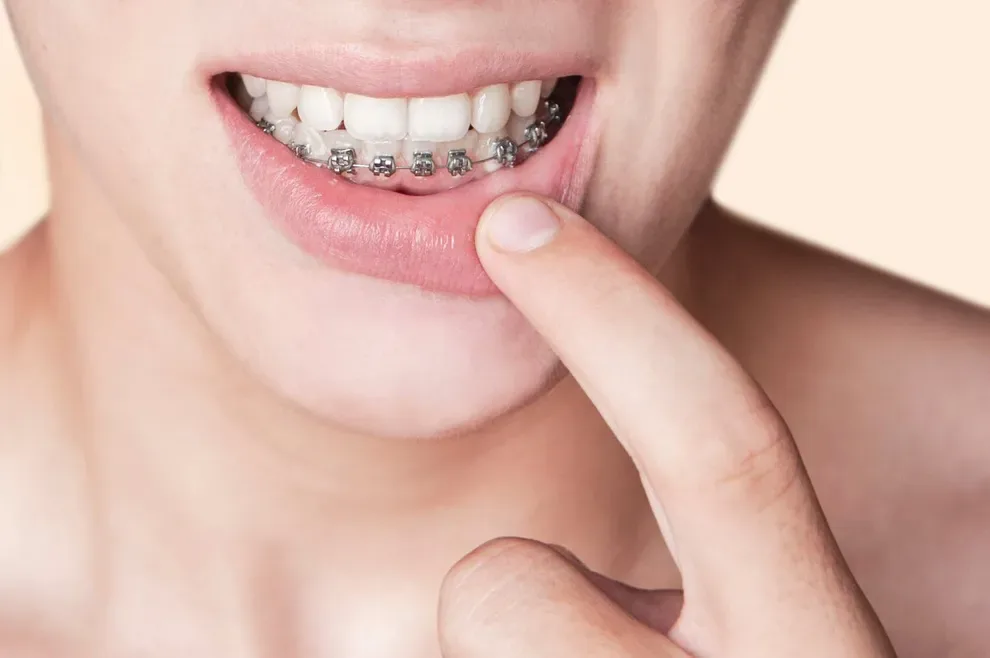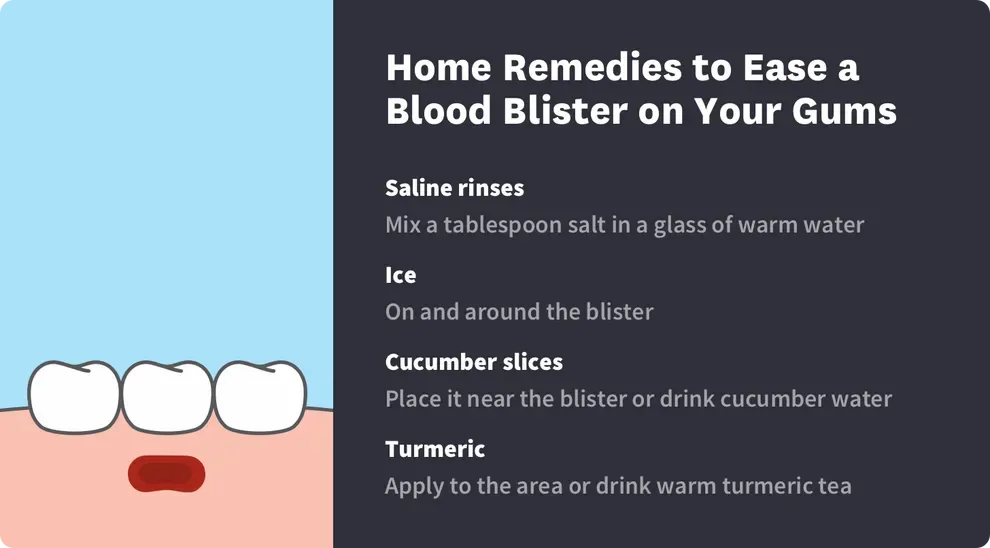How to Safely Manage a Blood Blister on Your Gums

Table of Contents
- Why Did a Blood Blister Appear on My Gums?
- Reasons for Blood Blisters on the Gums
- Home Treatments
- Getting Dental & Medical Treatment
Blood blisters are a common occurrence and typically harmless, although they may be startling when they appear in your mouth or on your gums. These usually appear randomly, for no reason, and will go away on their own.
Accidentally hurting your gums in some way might cause one to appear. Being under a lot of stress or having an allergic reaction might also cause one.
Do not pop blood blisters. This increases the risk of infection. If a blood blister grows larger, does not go away, or keeps coming back, talk to your dentist.

Why Did a Blood Blister Appear on My Gums?
The term blood blister refers to small blisters that appear to be filled with blood. They are often dark red or dark purple in color.
No one knows for sure why blood blisters appear in the mouth, including on the gums, but there are several possible causes, ranging from bruising after an accident to vitamin deficiency to cancer. Typically, blood blisters appear for no reason and disappear on their own.
If you struggle with frequent blood blisters, have other symptoms alongside blood blisters, or have a blood blister that will not go away, talk to your dentist.
Reasons for Blood Blisters on the Gums
The most likely reason you develop a blood blister on your gums is simple: There is no known cause, and it is harmless. However, there might be a reason the blood blister appears on your gums, including the following:
Accidental injury, from hitting your face, poking your gums, or even just eating crunchy food
Eating something too hot that scalds your mouth
Experiencing high stress
Having an allergic reaction
Poorly fitting dental appliances, such as clear plastic aligners or dentures
Blood blisters typically go away on their own. But if you have consistent, recurring, or chronic blood blisters, there may be an underlying health reason causing them to continually appear. This might include the following:
Renal (kidney) failure
Oral herpes (herpes simplex virus I)
Substance abuse, especially alcohol or tobacco use
Low platelet count due to a blood clotting disorder
Vitamin deficiencies
Diabetes
Immune disorders
Oral cancer
If you are concerned about a blood blister that does not go away, recurring blood blisters, blood blisters that occur after an accident, or blood blisters alongside other symptoms like pain in your gums, talk to your dentist to get a diagnosis.
Home Treatment to Ease Blood Blisters While They Heal
You might feel impatient while you wait for an unsightly or uncomfortable blood blister on your gums to go away, but it is important notto pop or squeeze a blister, including a benign blood blister. Damaging your gums in this way can lead to gum disease and harm your oral health.
While you wait for the blister to heal, here are some home remedies you can try to help your mouth feel more comfortable:
Saline rinses (a tablespoon of salt in a glass of warm water) can reduce the risk of infection and ease pain for a few hours, especially right before you sleep.
Ice can reduce inflammation, swelling, or the feeling of heat if the blood blister has an associated infection.
Cucumber slices, which contain silica, promote skin regeneration and healing. This is why they are applied in spas. Place a cucumber slice near the blood blister on your gum for relief, or drink cucumber water.
Apply a little turmeric to the area, or drink a warm (not hot) turmeric tea. This can help to reduce inflammation and remove some harmful bacteria.
You should also avoid:
Spicy, pepper, salty, or acidic food, which can irritate the area.
Crunchy or hard food, which can cause pain to the area.
Placing clear aligners or dentures on the gums until the blister heals.
Getting Dental & Medical Treatment for Blood Blisters
Recurring, large, painful or infected, or stubborn blood blisters require medical attention to determine their underlying cause. Visit your dentist if you have any concerns. Once the dentist examines the blister, they can refer you to a doctor for diagnosis and treatment if the blister appears to be related to diabetes, cancer, herpes, or another condition. This ensures you get proper medical treatment to improve your overall health, including your oral health.
It's most likely that the blood blister is simply the result of stress, pressure on the gums, injury to the gums, or random chance. If you think the blister came from poorly fitting dental devices, talk to your dentist to have them refit.
You want your smile to be its best, but you must make sure your teeth aligners fit your teeth and mouth properly. Follow any instructions you receive from your dentist and from the company where you purchased your clear aligners. Removing sources of irritation allows the blister to heal.
